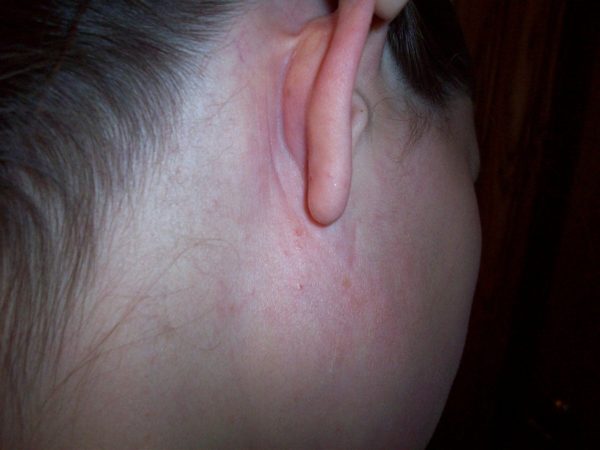
Allergy is hypersensitivity due to exposure to a certain antigen resulting in a marked increased reactivity to that antigen. The exposure to that antigen might result to harmful immunologic reactions. An antigen is any substance whose contact with any part of body evokes an immune response. Jewelry includes ornaments containing or made from jewels or precious metals.
Article Contents
What Is Jewelry Allergy?
Jewelry allergy is the hypersensitivity which occurs when skins comes into contact with specific types of ornaments. It should be noted that not all people have jewelry allergy. Consequently, not all ornaments can trigger an allergic reaction to people.

What Causes Jewelry Allergy?
Most forms of jewelry allergy are caused by metal nickel. It is used to manufacture metal alloys. In most cheap jewelry, nickel is regularly used in the base metal and then coated with silver or gold. Most people think that they are allergic to silver or gold which is not true.
In the real sense, they are allergic to nickel which is used in the metal base. It is used to straighten that piece of jewelry.
In 2008, Nickel was ‘honored’ and named Contact Allergen of the Year. This was due to the high number of people who reacted to it.
Note that reactions to jewelry can be caused by other factors other than allergy.
The following are other causes of jewelry reaction;
- Irritant contact eczema may be incited by friction, surface particles among other things of the jewelry. People who suffer from sensitive skin or atopic eczema are likely to have irritant reactions.
- The pierced part may be infected with Staphylococcus aureus bacteria. This will result to discharge and crusting.
- Psoriasis and vitiligo can koebnerise, i.e. this can be seen at the site of a tight watch strap, bangle or necklace.
- Any causes for rashes must be considered, mostly if patch tests prove adverse.
Can One Avoid Jewelry Allergy?
The easiest way to deal with allergic reactions to something is to avoid the allergen.
People with jewelry allergy don’t have to stop wearing them. Instead, they should be more conscious of jewelry type to wear.
Silver, Titanium or Platinum jewelry are less to cause allergic reactions. This is because they have little or no amounts of nickel.
For people who value gold jewelry, they need to consider more pure to coated ones. That is since nickel alloy is present in gold, the purest the gold the less nickel alloy and less allergy. It means that 14K gold is more likely to cause an allergy as compared to 18K gold. Completely pure gold often is not a realistic option for jewelry as it won’t be durable. It is, therefore, advisable to get a regular gold jewelry which is less allergic and durable.
Adding plastic covers to nickel ornaments such as earrings can also help prevent the allergy. You can also coat the ornaments that your wear daily with less reactive metal. This though will be done regularly as the coat will keep on fading.
Jewelry Allergy Signs and Symptoms
A person having jewelry will notice the following signs and symptoms
Itching, redness, rash, dry patches, and swelling of the skin. Sometimes blisters follow. They may break, leaving crusts and scales.
Can Jewelry Allergy Be Treated?
Depending on the extent of allergy a doctor may prescribe hydrocortisone cream and antihistamine pills which may help. In the case of severe symptoms, the doctor may prescribe a steroid cream or a drug that works on the immune system.
The most reliable treatment for jewelry allergy will require the person suffering to remove and stay away from all liable ornaments.
References
- http://www.dermnetnz.org/topics/jewelry-allergy/
- http://www.webmd.com/allergies/guide/nickel-jewelry-allergy#1
Be the first to comment